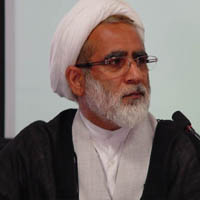Applying the,Thematic Analysis Method, in Reviewing and Comparing the Status of 'Thought' in the Quran & Psychology
In recent decades, despite the respect for quantitative and integrated methods, there has been a growing interest in qualitative research methods by researchers. Among the various qualitative methods, only some of them can be used in reading the text, one of which is the “content analysis” method. The purpose of this research is to introduce this method, through its application in Quranic-psychological study, about the word “thought” as an example. The data collection method of this research was library and the data analysis method was rational analysis. First, the method of analyzing the theme and its sub-categories is introduced, and then, the verses related to the subject of “thought” are collected using the theme network method. Then we extract the “basic themes” from the Qur'an and through them, we reach the “organizing themes” and finally the “all-encompassing themes”. In the final step, the Qur'anic results obtained on “thought” are compared with the psychological structure of “thought”. The findings of the Qur'anic study provided two comprehensive themes of “origin” and “resurrection”, and a comparative study showed that the purpose of thinking in the science of psychology is to restore “psychological balance”; While the purpose of “thought” in the Qur'an is “happiness in the hereafter”; Also, thinking in its Quranic meaning gives identity, direction and meaning to human life, while in its psychological meaning, thinking is a process that helps him in evaluating, concluding and deciding. It also turned out that the “method of content analysis” is very effective in the study of “Quran-based psychology”.
-
An Overview of "Inferential Method" as a Qualitative Research Method and its Application
Mohammad Kavyani *
Journal of Studies in Islam and Psychology, -
Introduction and Application of the Qualitative Method of "Discourse Analysis" in the Study of "Adolescent Development" from the Qur'anic Perspective
Muhammad Kavyani *, Seyyed Muhammad Eftekhari
Journal of Mature Wisdom Interpretation and Qur'anic Sciences,


